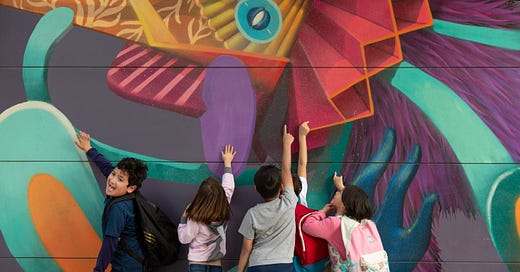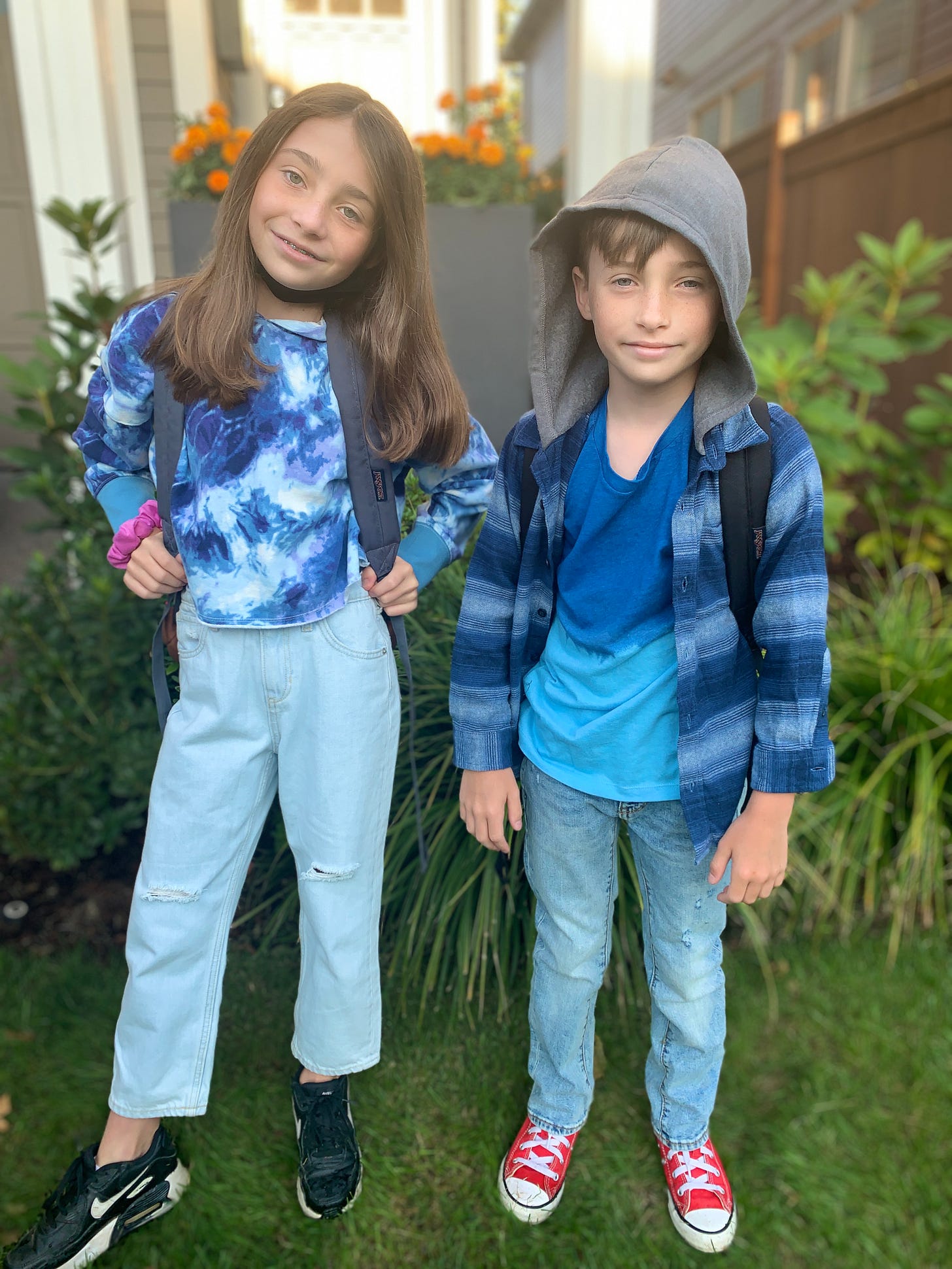The Education Policy Hotlist
Subscribe to the Evidence Project Newsletter for the New Research & Policy Hotlist
About a year ago I started publishing the Education Policy Hotlist, which emerged from a weekly report out I sent to colleagues. At the time, my friends shared that it was useful to have data, policy challenges, and an actionable synthesis in one place. Now, serving at the Center on Reinventing Public Education, I am excited to focus this content into the evolving Evidence Project initiative.
Please subscribe to the Evidence Project Newsletter to stay up to date on top education research and policy news.
And note, the Education Policy Hotlist will continue serving as an informal vehicle to curate critical perspectives on emerging education policies (and, as always, a little family fun!). So, stay tuned!
Well, we did it! After a roller coaster summer of hope, uncertainty, and confusion, my kids are back in school with their friends. All day yesterday the excitement and nervous energy in our home was palpable and nearly drove me insane (kidding, not kidding).
This morning we waited, a frenzied blob of parents and kids waving and shouting names in front of the school, and the air felt crisp, fresh, and ready for something different.
Don’t get me wrong: I am scared and concerned about the potential that our unvaccinated children will get sick with COVID-19. I am scared that if they are sent home again for a short or long period we will have to endure the emergency learning scenario form last year (which did not work for any of my children). I am scared that teachers will face burnout, spirits will dip to new lows, and we will be picking up the pieces from a third tumultuous pandemic year.
But, driving through my neighborhood and seeing kids smile, high schoolers walking to lunch together, and parents enjoying moments of solidarity in the middle of uncertainty - this is my community and I believe in us.
This month I’ve been reflecting about how my personal critique and hopefulness for local experiences aligns with my work along the national landscape of school reopening and education policies. Here is where I’ve landed:
If something isn’t working for you, say so. More people need to share their perspectives, experiences, and diverse points-of-view. We have way too much binary thinking and the messy middle is where the best most enduring policies are made. So, be that person who stands up and says, “Hey, this is confusing. I am not really sure what is right, but I know what is happening is not working for me.”
Consider the value of bold, immediate action. I am definitely guilty of spending too much time contemplating an idea, while the opportunity to land it successfully has passed me by. Now is not the time for that type of hesitancy. In this moment, we cannot allow “perfect” to become the enemy of “good” because too much is on the line. Our future generation needs good policy solutions immediately and if you are leader your job is to make that happen.
Maintain focus on what matters most in the long-term. Everything feels complicated right now. But, when I stop and really think about it I want my kids to be healthy and experience success. And, I know what actions to take to ensure they have both of these things. Our country is getting caught up in politics and foregoing common sense solutions. In other words, when it comes to saving kids lives and ensuring students are learning all year, it is worth implementing policies and practices that are low risk and high reward, even if the evidence is mixed.
You see, I’ve concluded that we have more in our control than we think. And, right now our personal agency is our capital for recovery, restitutions, and rebuilding. Cheers to being together in 2021-22!
Dr. Christine M. T. Pitts serves as Resident Policy Fellow at the Center on Reinventing Public Education. As an Oregonian, raised by a multicultural family of educators, she brings over a decade of strategic leadership experience advancing a transformative vision for US education systems and bringing analytic skill to evidence-based policy agendas at all levels of governance. Prior to joining CRPE, Christine led research and evaluation for Portland Public Schools in Oregon and served as Policy Advisor at NWEA. Her academic research, focusing on accountability, governance, and social networks, can be found in Educational Researcher and Teachers College Record. As a lifelong educator, Christine has served in schools across the country as a 3rd grade teacher, reading specialist, and school and district administrator. Christine earned her BS and MAEd at East Carolina University, as well as her PhD at the University of Oregon. Christine lives with her husband and four children in Portland, Oregon. Follow her on Twitter @cmtpitts.






